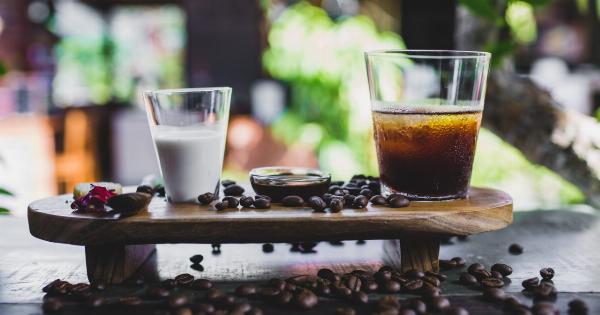Energy drinks have gained immense popularity over the past decade. With promises of increased energy and improved performance, these beverages have become a go-to choice for many individuals, especially those leading busy and demanding lifestyles.
However, concerns have been raised regarding the potential link between energy drink consumption and the development of diabetes. In this article, we will explore the existing research and evidence to determine whether there is indeed a connection between energy drinks and diabetes.
Understanding Diabetes
Diabetes is a chronic condition characterized by elevated levels of glucose in the blood. There are two main types of diabetes – type 1 and type 2.
Type 1 diabetes is an autoimmune disease in which the body’s immune system mistakenly attacks and destroys the insulin-producing cells in the pancreas. On the other hand, type 2 diabetes is a metabolic disorder that occurs when the body becomes resistant to insulin or fails to produce enough insulin to regulate blood sugar levels effectively.
Energy Drink Composition
Energy drinks typically contain various ingredients, including caffeine, sugars, taurine, B-vitamins, and herbal extracts.
These components work together to provide a stimulating effect on the central nervous system, resulting in increased alertness and energy levels. However, it is essential to examine the impact of these components on the development and progression of diabetes.
Effects of Caffeine on Blood Sugar
Caffeine is a key ingredient in most energy drinks and is known to have an impact on blood sugar levels. Research suggests that caffeine can temporarily reduce insulin sensitivity, causing a short-term rise in blood sugar levels.
However, these effects are usually minimal, and the body can compensate accordingly. As a result, moderate consumption of caffeine through energy drinks alone is unlikely to contribute significantly to the development of diabetes.
The Role of Sugar in Energy Drinks
Sugar content is one of the major concerns when it comes to energy drinks and diabetes. High levels of added sugars can lead to weight gain and obesity, which are risk factors for type 2 diabetes.
Furthermore, excessive sugar intake can also cause insulin resistance over time, further increasing the risk of developing diabetes. Therefore, it is crucial to consider the sugar content and frequency of consumption when evaluating the potential link between energy drinks and diabetes.
Effects of Taurine and B-Vitamins
Taurine and B-vitamins are commonly found in energy drinks and are believed to enhance physical and mental performance. Taurine has been shown to have insulin-like effects, potentially improving glucose tolerance and insulin sensitivity.
Similarly, certain B-vitamins, such as vitamin B12, have been associated with a reduced risk of type 2 diabetes. However, the amounts of these ingredients in energy drinks are usually minimal, and their impact on diabetes risk remains inconclusive.
Herbal Extracts and their Effects
Many energy drinks also contain herbal extracts, such as guarana and ginseng. While these extracts may provide additional energy-boosting properties, their impact on diabetes risk is largely unknown.
Limited research exists on this topic, and more studies are needed to determine whether these ingredients contribute to the development of diabetes.
The Importance of Moderation
Although the existing evidence is inconclusive regarding the direct link between energy drinks and diabetes, it is important to highlight the significance of moderation.
Excessive consumption of energy drinks, particularly those high in sugar, can have a negative impact on overall health. Regular consumption of sugary beverages can lead to weight gain, obesity, and an increased risk of type 2 diabetes. Therefore, it is essential to consume these drinks in moderation and opt for healthier alternatives when possible.
An Alternative: Homemade Energy Drinks
For those who enjoy the energizing effects of energy drinks but want to avoid potential risks, creating homemade alternatives could be a viable option.
By opting for natural ingredients, such as green tea, fruits, and herbs, individuals can control the sugar content and ensure a healthier beverage option. Homemade energy drinks allow for personal customization and the avoidance of potentially harmful additives often found in commercial brands.
Conclusion
While energy drinks have become increasingly popular, concerns regarding their potential link to diabetes have been raised.
While the existing evidence does not definitively establish a direct connection between energy drinks and diabetes, the sugar content and frequency of consumption play a significant role. Weight gain, obesity, and excessive sugar intake are risk factors for type 2 diabetes. Therefore, it is crucial to approach energy drinks, as well as other sugary beverages, with moderation and consider healthier alternatives.
Further research is needed to provide a more comprehensive understanding of the relationship between energy drinks and diabetes.



























